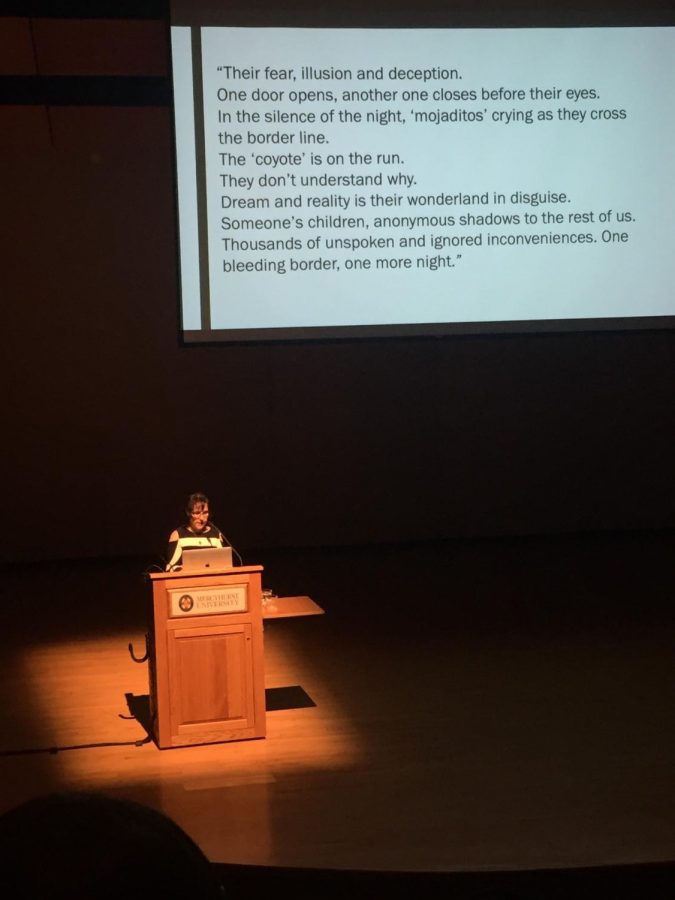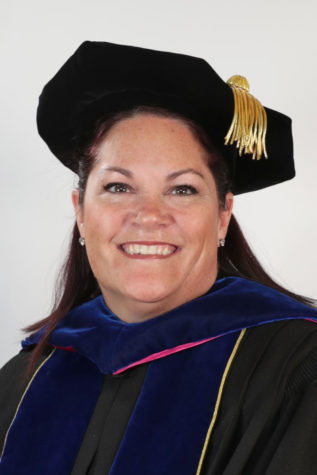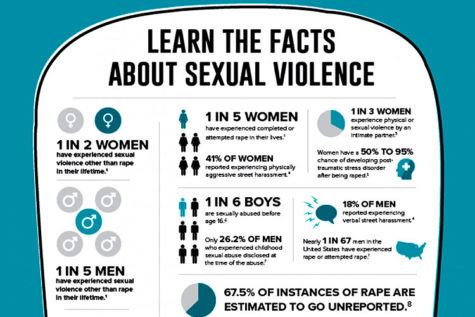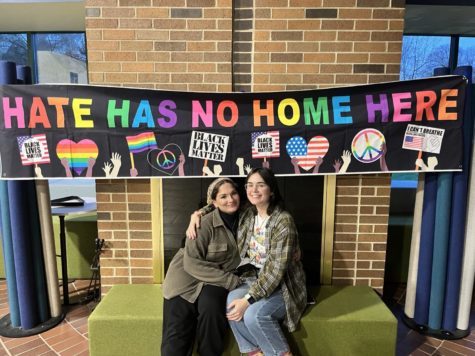Hurst hosts Cecilia Gonzalez-Andrieu
October 1, 2019
On Sept. 26, Mercyhurst brought Cecilia Gonzalez-Andrieu, Ph.D. of Loyola Marymount University in Los Angeles to speak on “Wounded Grace and the Vulnerable Among Us.”
Gonzalez-Andrieu used grueling imagery and first hand testimonials to hit home with the audience the concepts of love, truth, reality, vulnerability and grace, while also touching upon negative things such as pain, woundedness, struggle and strict immigration laws.
Gonzalez-Andrieu remembered the exact moment when she began thinking about grace, on Jan. 4, 2017, just a few weeks before president Trump was set to be inaugurated with the promise of building a wall.
This issue affected her personally, as she works with many students and coworkers at her university who are immigrants, all fearing what the next few years may bring them as if they were walking across a rickety suspension bridge.
She highlighted that fear allows grace to be present in immigrants lives.
Now what exactly is grace, and how do we speak of it in the face of suffering? Gonzalez-Andrieu highlighted that grace is not a concept, yet an experience that occurs when we open ourselves up to suffering, God, reality and the nature of creation.
A connection was drawn between immigrants whose lives could change in a moment, and the chemotherapy patients of which Gonzalez-Andrieu was exposed to within her chemotherapy ward: that there was a shared humanity through woundedness.
During her talk, Gonzalez-Andrieu pulled quotes and imagery from CELAM, a Latin American conference, and quotes from Saint Teresa and many others to explain that humans need to have a critical eye about the wide attitude of “the Other,” and bring openness, acceptance, and kindness to ourselves, others and our attitudes about God.
She begged that we must engage in participatory democracy, celebrate our diversity and embrace both our grace and sin.
She claimed that the assault on the vulnerability of “the Other” involves lies, and we must accept the nature of objective reality rather than attempting to create them ourselves, and that courage and resilience flourish in the face of this assault.
Gonzalez-Andrieu closed her speech with an eye-opening image known as The Bleeding Border. This image depicts a scene at the Southern border: two children run through a gleaming door toward the viewer, and in the background the border wall shines with graffiti and blood. In other areas of the painting, caution border crossing signs and others running through the border attract the eyes of the viewer.
The words on the border of the painting read: “Illusion and deception. One door opens, another one closes before their eyes. In the silence of the night, “mojaditos” crying as they cross the line. The “coyote” is on the run. They don’t understand why. Dream and reality is their wonderland in disguise. Someone’s children, anonymous shadows to the rest of us. Thousands of unspoken and ignored inconveniences. One bleeding border, one more night.”
Miranda Chen, a sophomore Intelligence Studies major attended the event, and offered comment upon the talk.
“I think it’s very eye-opening to go to a Catholic university and be shown by Gonzalez-Andrieu how the main values of the university and the Sisters of Mercy really connect to real world events and people,” Chen commented after the talk. “A lot of the imagery that she used really helped to hit the issue home for a lot of people in the room.”









Cecilia Gonzalez-Andrieu, PhD. • Oct 3, 2019 at 1:04 pm
It was a pleasure to meet the Mercyhurst community. I thank you for this comprehensive report that lets me know that the students were moved to reflection and prayerful action on behalf of the vulnerable of the world. As I suggested during my talk, the Ignatian Solidarity Network has great resources to help us think about immigration in relation to our Catholic Faith – more here: https://ignatiansolidarity.net/immigration-resources/?fbclid=IwAR10oDO_gjKwFE2rr7eBRpc0b9tFPSn3DDvAi6ag4fT9PZVgiiEHwzi7a24
Paz y bien,
Cecilia González-Andrieu, PhD. Loyola Marymount University